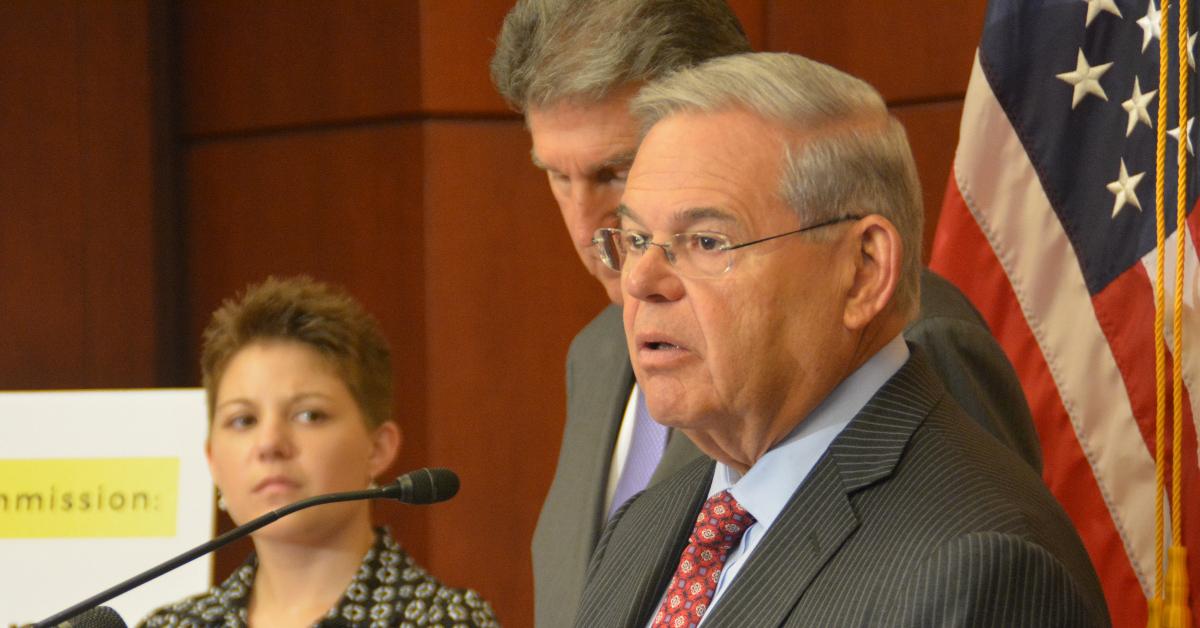Last week, prosecutors for the Southern District of New York unsealed an indictment against New Jersey senator Robert Menendez. The senator, his wife, and several businessmen are accused of providing “sensitive U.S. Government information” and taking steps that “secretly aided the Government of Egypt” in exchange for cash, gold bars, a luxury convertible, and more.
Senator Menendez has dismissed the charges and refuses to resign from Congress. In a statement Friday, he attempted to explain away the indictment as a political attack from “forces behind the scenes.” And in a press conference Monday, he said he expects the trial to exonerate him.
But also featured in the senator’s Friday statement was an interesting admission. In highlighting his exchange of political privileges for cash and gifts, Menendez said prosecutors have “misrepresented the normal work of a Congressional office.”
Menendez is right. But that’s less a defense of his actions than a condemnation of our entire political system. The effort by foreign governments and corporations, both at home and abroad, to influence the US federal government is extensive. But the roots of this problem lie in the globe-spanning power of Washington, DC, not a couple unconventional payments to one New Jersey senator.
According to the indictment, from 2018 until at least 2022, Senator Menendez allegedly used his position as the chair and ranking member of the Senate Foreign Relations Committee to secretly aid the Egyptian government “with respect to foreign military sales and foreign military financing.” He also pressured officials at the Department of Agriculture to grant monopoly privileges to his wife’s longtime friend, Wael Hana, a New Jersey businessman with ties to the Egyptian government.
In exchange for these services, Senator Menendez and his wife received hundreds of thousands of dollars in cash. They also received thirteen gold bars, a new Mercedes Benz convertible, and payments toward their home mortgage.
But, to Menendez’s point, there is nothing abnormal about a foreign government spending money to influence an American policymaker. In fact, according to Open Secrets, since 2016 thousands of foreign agents and lobbyists have registered with the Department of Justice to lobby on behalf of foreign governments. Collectively, these governments have spent billions trying to influence American policymakers to their own benefit.
But the number of registered foreign agents and their reported spending underrepresents the extent of foreign lobbying and bribery. As Ben Freeman and Eli Clifton of the Quincy Institute for Responsible Statecraft have demonstrated over and over again, foreign governments fund many top Washington think tanks—a way to influence American policymakers that often goes undisclosed.
Individual politicians also enjoy their share of foreign government cash. For example, as is detailed in one of Clifton’s latest reports, the top 2024 Republican presidential candidates have received “six- or seven-figure paydays” from foreign governments, including the United Arab Emirates and Oman. And, of course, President Joe Biden’s own son received millions of dollars from foreign sources with close links to the governments of China, Ukraine, Romania, and Kazakhstan, culminating in a “salary” he claimed to split with his father.
The widespread nature of foreign payoffs in Washington, DC, should not be taken as a defense of Senator Menendez but as evidence that exchanging political favors for cash is much more common than the occasional scandal would have us believe.
And, crucially, it must be understood that the United States’ ability to offer fruitful political privileges is responsible for all the cash pouring into DC, not the reverse, as many progressives claim.
For foreign governments like Egypt, the political privilege for sale is access to the largest, most powerful military in history and the arms industry that props it up. That is the real problem that this Menendez story brings to light.
Our politicians have used our money to build a global empire backed by the most powerful military and arms industry in history, the use of which they can then offer up for sale. Why are we ever surprised that there are interested buyers?




